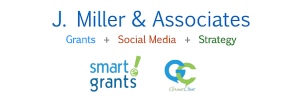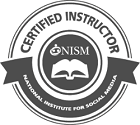How Can You Get More Grants? Don’t Chase the Money!
Here is what I know for sure, a motto if you will – Don’t chase the money. Chase your dream! The money will follow.
What do I mean by chasing money?
Don’t go after a sponsor, a grant or an investor for their money. Be aggressive in planning your dream, your vision, your impact. Go to a funder with you plan in hand. Approach a funder as a partner, an investor in YOUR vision.
There are many funding opportunities for all kinds of things from social enterprises to nonprofits, from corporate sponsored programs to product endorsements, and much more. To be effective in seeking funding you have to be prepared with a strong project design and know what you offer the potential funder.
If you want a federal grant, in most cases, the grantor will require specific measurable results and will have very specific budget requirements. If you are seeking a foundation grant or a corporate giving program you will need to understand their mission and goals and be able to communicate the ways that you will contribute to their goals. It’s easy to have mission creep if you design your project around the funder’s requirements rather than designing your program or project first.
Chasing the Money Doesn’t Work!
I see organizations and individuals chase the money and it doesn’t work. Why doesn’t chasing the money work?
1) ‘Chasers’ are transparent – a funder knows when you are chasing the money,
2) the ‘chaser’ doesn’t offer the funder any value and are merely seeking the money, and
3) they are competing against others who are NOT chasing the money and who have clear plans to achieve their dreams.
You Have a Vision – Now What?
Break that business plan down by key elements. Figure out what those elements cost. Request investments in those elements and tell the investor (grantor, sponsor, partner) what they will get for their investment.
Before you consider applying for a grant you will want to ensure you are eligible and prepared to apply. A great place to start is with our Grant Ready Assessment tool!
Design the Project First
{action item} Design the project first and then find the funding opportunities that fit your project in scope and in shared values. Design you program, your project, your vision. Draft your goals, measurable results, and budgets well in advance of seeking any funding. Sure, you can look around, see what has been funded in the past and find out if funders have supported similar project to the one you have in mind or support similar organizations to your organization.
Grants, corporate giving programs, and social enterprise investments are incredibly competitive. Organizations that invest in the development of a well thought out program or project plan are able to compete and win partners, grants and investors. You should have your project designed well in advance of the RFP, NOFA or Application opportunity.
The time between the announcement and the due date should be used to fine tune your application and not to begin your project vision.
No Free Money
There is no “free money”. There is work and preparation for proposals and project design. There is time needed to research opportunities and funding streams that meet your project design, your organization’s eligibility and capacity. There are always laws and requirements to understand and prepare for around various types of funds. Grants are usually for nonprofits, government agencies and educational organizations
As I have mentioned before, there are only a (very) few opportunities for business grants. Some business grants are available through state and local programs, nonprofit organizations and other groups. For example, some states provide grants for expanding child care centers; creating energy efficient technology; and developing marketing campaigns for tourism. These grants are not necessarily free money, and usually require the recipient to match funds or combine the grant with other forms of financing such as a loan. The amount of the grant money available varies with each business and each grantor. If are seeking funds and you are not one of these specialized businesses, both federal and state government agencies provide financial assistance programs that help small business owners obtain loans and venture capital financing from commercial lenders.
I’ve developed a Proposal Template that you are welcome to use. Once you fill out the form I will prepare a report that includes your answers and an overview evaluation of the proposal to identify strengths and weaknesses and, if applicable, suggested funders to approach.
With a strong plan and project design in hand your grant professional will be able to target their research and identify and apply to multiple funders who share your vision.















Right on Jo! One of the reasons securing a grant can be so difficult is funders have to weed out the chasers. The LOI process is one way funders try to separate out the good, well-thought out projects from those devised just to get money. The LOI process can add three to six months to the grant making process. Grant seekers should only submit grant requests when they have developed a strong program or project concept toward well-defined goals that can be realistically be achieved through measurable objectives attainable through realistic strategies (activities) that directly related to impactful outcomes. A lot, I know. But each piece is necessary.